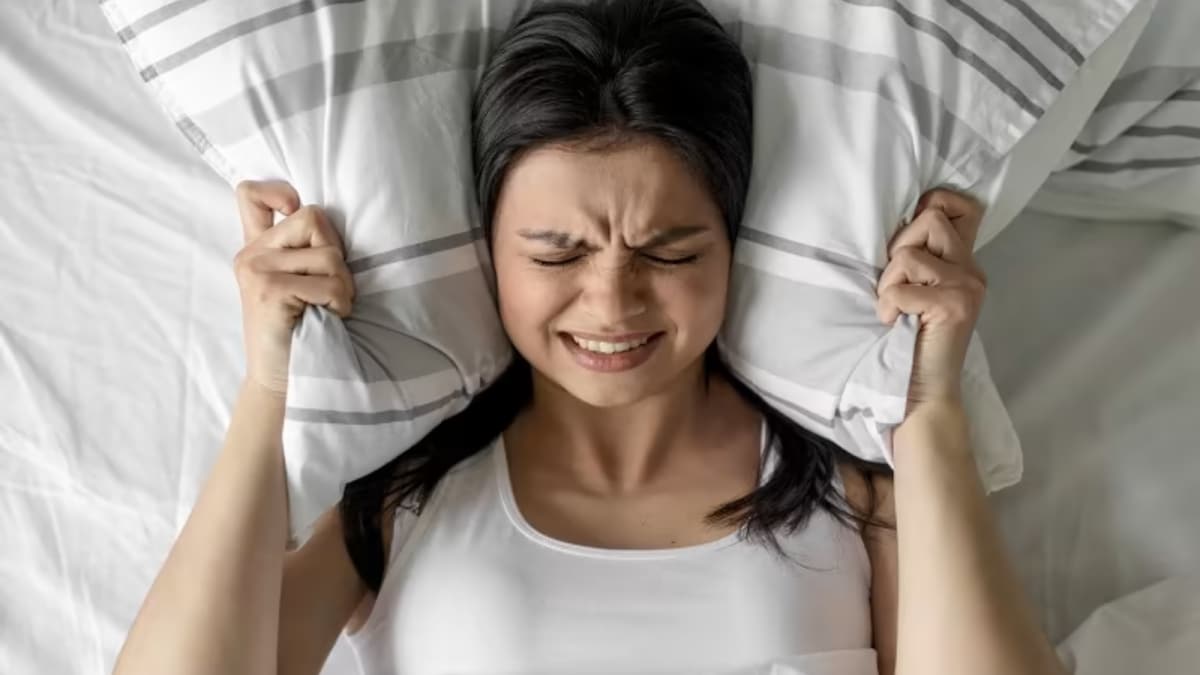Last Updated:
Sleep disorders could severely burden India’s healthcare and economic systems in the coming decades, especially as we mark International Youth Day

Recent studies suggest that one in three young Indians suffers from at least one form of sleep-related issue
The rising incidence of sleep disorders among Indian youth is fast becoming a public health crisis. If left unaddressed, it could severely burden India’s healthcare and economic systems in the coming decades, especially as we mark International Youth Day.
Dr. Kunal Bahrani is Clinical Director and HOD, Neurology Department, Marengo Asia Hospitals, Faridabad, says, “In the last decade, I have seen a silent epidemic grow in clinic rooms, hostel beds, exam-prep lounges, and co-working spaces: sleep disorders in the youth. Sleep isn’t just “rest” – it’s a neurological function as critical as breathing. Yet, an increasing number of young people are sacrificing it in the name of productivity, entertainment, or simply trying to keep up with others.” Sleep disorders are no longer a personal inconvenience; they are rapidly becoming a public health threat.
Recent studies suggest that one in three young Indians suffers from at least one form of sleep-related issue. Compared to 15 years ago, the incidence of insomnia, delayed sleep phase disorder, and non-restorative sleep has doubled. According to a 2022 AIIMS report, nearly 52% of students surveyed reported poor sleep quality.
The 16–24 age group is particularly vulnerable to sleep disorders in India. These are years marked by academic pressure, emotional turbulence, and excessive screen time. The combination of hormonal changes, social media influence, and late-night habits makes this age group a high-risk population. The most common disorders I see in today’s youth include insomnia (difficulty falling or staying asleep), delayed sleep phase disorder (sleep cycle shifted to late night and late waking), restless legs syndrome, non-restorative sleep (waking up tired despite adequate hours), and sleep apnea (increasingly seen in overweight youth).
Several factors contribute to the rise in sleep disorders among the youth, including blue-light exposure from screens, irregular sleep schedules (especially post-COVID), academic stress and performance anxiety, over-stimulation before bedtime (scrolling, gaming, binge-watching), and the consumption of caffeine and energy drinks. The neurological and cognitive consequences are serious: reduced memory retention and learning capacity, poor emotional regulation leading to mood swings, aggression, and anxiety, lowered attention span and focus, increased risk of migraines and neurological burnout, and even long-term changes in brain plasticity if sleep deprivation continues for years.
Treatment for sleep disorders often begins with non-pharmacological interventions, such as Cognitive Behavioural Therapy for Insomnia (CBT-I), circadian rhythm regulation, blue-light filters and digital curfews, and relaxation techniques like deep breathing and mindfulness. Medication is prescribed only when necessary, and always for a brief period.
To prevent sleep disorders, several steps can help: maintain a consistent sleep–wake cycle, even on weekends; avoid screens at least one hour before bed; and cut down on caffeine after 2 p.m. (caffeine has a half-life of 5–6 hours, which means your afternoon coffee may still be active in your system well into the night). Create a wind-down routine, such as a calming pre-sleep ritual, and prioritise sleep as you would an important meeting or deadline.
Remember: sleep is not optional. It is central to your wellbeing.

Swati Chaturvedi, a seasoned media and journalism aficionado with over 10 years of expertise, is not just a storyteller; she’s a weaver of wit and wisdom in the digital landscape. As a key figure in News18 Engl…Read More
Swati Chaturvedi, a seasoned media and journalism aficionado with over 10 years of expertise, is not just a storyteller; she’s a weaver of wit and wisdom in the digital landscape. As a key figure in News18 Engl… Read More
view comments







